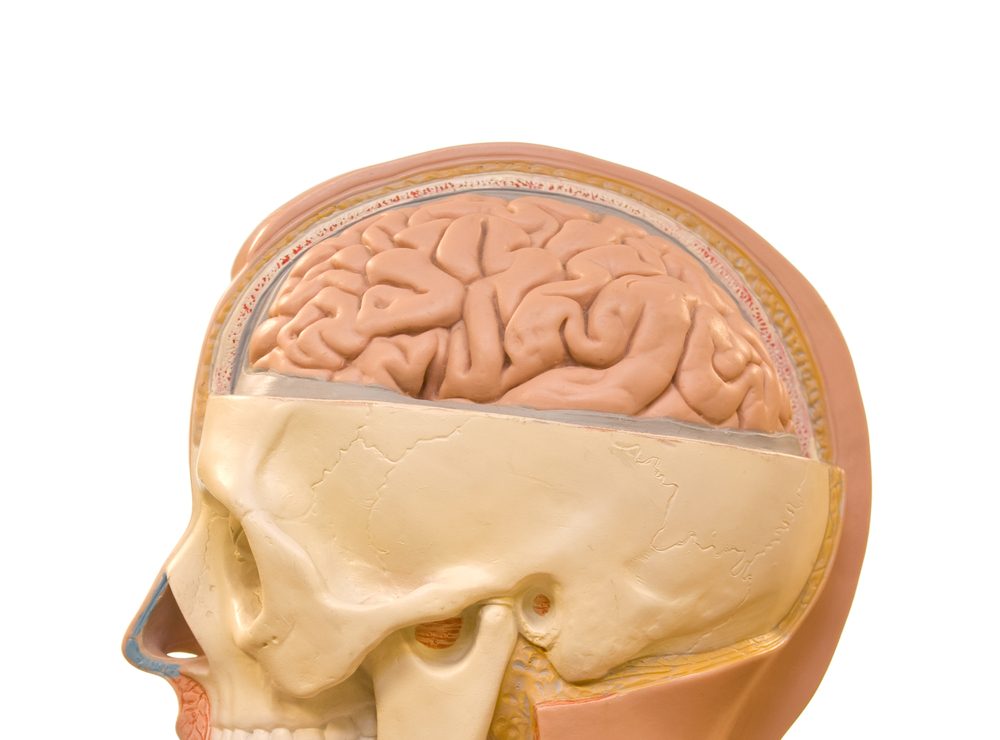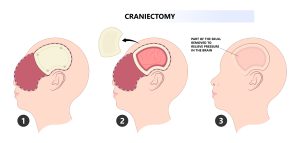Welcome to the Craniotomy Surgery Clinic at Emirates Hospitals Group, where we specialize in the treatment of patients who require craniotomy procedures. Craniotomy is a type of neurosurgical operation in which a part of the skull is removed to access the brain, allowing surgeons to diagnose and treat various neurological conditions. Our expert team of neurosurgeons, neurologists, and healthcare professionals use advanced surgical techniques to ensure the highest quality of care and achieve the best possible outcomes for our patients.
Whether you need craniotomy for brain cancer, brain injury, or other conditions, our multidisciplinary team is dedicated to providing you with personalized care tailored to your specific needs. We understand the challenges that come with brain surgery, and we are committed to supporting you throughout your entire treatment journey.
What is Craniotomy?
A craniotomy is a surgical procedure where a portion of the skull is temporarily removed to access the brain for the purpose of treating various neurological conditions. The skull is replaced after the surgery. This procedure allows the neurosurgeon to treat conditions such as brain tumors, traumatic brain injuries, blood clots, brain infections, and more.
Craniotomy is performed with the utmost precision, using advanced imaging technologies and surgical instruments to minimize the risk of complications and preserve healthy brain tissue. The specific approach and technique used will depend on the condition being treated and the location of the problem within the brain.
Conditions Treated with Craniotomy
A craniotomy may be required for various brain conditions, including:
- Brain Tumors: Removal of tumors (benign or malignant) from the brain to alleviate pressure and prevent further growth.
- Traumatic Brain Injuries: Treatment of skull fractures, brain swelling, or blood clots (hemorrhages) resulting from accidents or injuries.
- Aneurysms: Repair of brain aneurysms to prevent rupture and bleeding in the brain.
- Infections: Removal of infected tissue or abscesses caused by bacterial or fungal infections.
- Epilepsy: In some cases, a craniotomy may be performed to remove brain tissue that causes seizures.
- Hydrocephalus: In some cases, craniotomy is done to treat abnormal fluid buildup in the brain, which can lead to increased intracranial pressure.
At Emirates Hospitals Group, our experienced neurosurgeons use advanced technology to guide craniotomy procedures with precision and care. The typical steps involved in a craniotomy include:
- Preoperative Planning: Detailed imaging (such as MRI or CT scans) is used to locate the problem area in the brain and plan the surgical approach.
- Anesthesia: The patient is placed under general anesthesia to ensure comfort and safety during the procedure.
- Incision: A precise incision is made on the scalp, and a section of the skull is carefully removed to access the brain.
- Surgical Treatment: The surgeon performs the necessary treatment—whether it is the removal of a tumor, repair of a blood vessel, or addressing other conditions.
- Closure: After the procedure, the skull piece is replaced and secured, and the incision is sutured closed.
Advanced imaging techniques, such as intraoperative MRI and neuronavigation, are often used during craniotomy surgery to guide the surgeon and ensure maximum precision.
Risks and Benefits of Craniotomy
As with any surgery, craniotomy carries certain risks, including:
- Infection: Risk of infection at the surgical site or within the brain.
- Bleeding: Although rare, bleeding can occur during surgery, which may require additional treatment.
- Neurological Deficits: There may be temporary or permanent changes in motor function, cognitive ability, or speech, depending on the location of the surgery.
- Swelling: Brain swelling may occur postoperatively, requiring medication or procedures to relieve pressure.
However, craniotomy can significantly improve the patient’s quality of life by treating serious conditions that would otherwise worsen, such as brain tumors or trauma. The benefits of the procedure often outweigh the risks when performed by skilled, experienced surgeons.

Post-Surgery Recovery for Craniotomy
Recovery after craniotomy surgery varies depending on the individual, the location of the surgery, and the complexity of the procedure. At Emirates Hospitals Group, we offer comprehensive care to support your recovery process:
- Hospital Stay: Most patients will stay in the hospital for 3 to 7 days after the surgery for monitoring and recovery. Some patients may require longer stays if additional care is needed.
- Pain Management: Pain medications are prescribed to help manage any discomfort, and swelling or inflammation will be closely monitored.
- Monitoring: During the hospital stay, patients are carefully observed for any complications such as infection, neurological changes, or bleeding.
- Rehabilitation: Some patients may need physical therapy, speech therapy, or cognitive rehabilitation if the surgery affected motor skills or cognition.
- Follow-Up Appointments: Patients will have follow-up visits to monitor progress and ensure proper healing, including imaging tests to check the brain for any complications or recurrence.
- Supportive Care: Our team provides psychological support, nutritional counseling, and assistance with daily activities during recovery.




